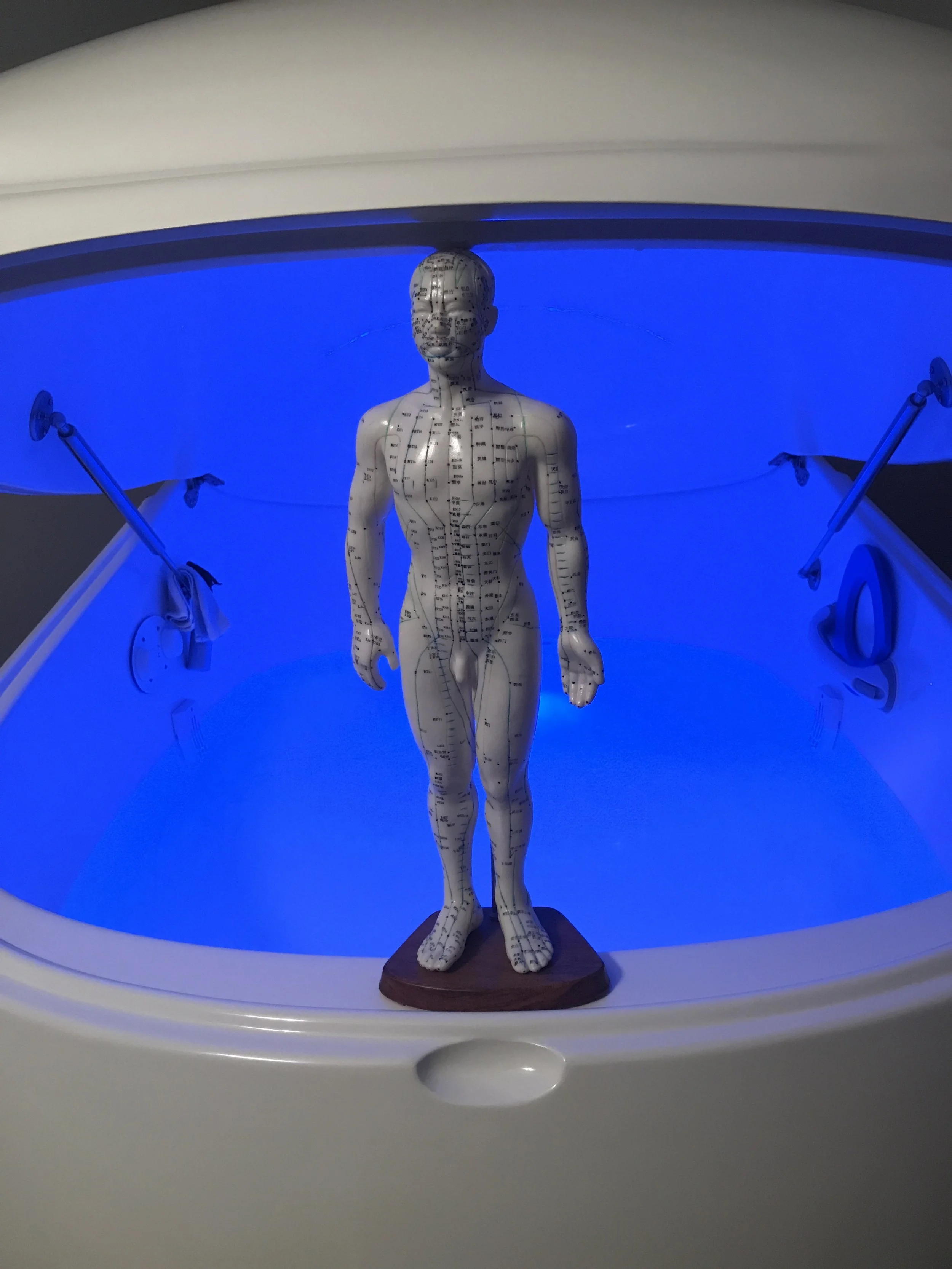He sat there in shock staring straight ahead in the driver’s seat. Getting some last errands done before emergency out of state travel, he had just started in motion after being stopped at a light. Without warning, he was rear ended by a car going over four times his speed. His bumper was crumpled. The other car’s hood looked like an accordion. The other driver’s car was towed and was taken to the hospital. He chose to go to The Float Zone and float.
On the way to The Float Zone, he began to feel tension creeping in, a headache on the way and a million big and little issues clouding his head. Thoughts about his multiple sclerosis. Thoughts about a past neck injury that brought him to a neurosurgeon who wanted to cut and he said “no”. Memories of using only his left arm to lift and shave and eat and dress, for months, were still fresh in his mind. He had recovered from this, and was feeling good and strong again. Ready to travel. And now, the thoughts of flying for hours, while in pain, was flying foremost in his brain.
Within an hour after the accident, he floated. His whole perspective changed. He was instantaneously transported to the parasympathetic nervous system state of being - a state of rest and relaxation. It gave him a chance to settle and slow down, to take control of his breathing, to relax his muscles.
The first hours after a car accident are the most crucial in terms of managing the inflammatory response and the adrenaline rush of the body’s “fight or flight” mode. It is always these immediate actions that can expedite or complicate both short and long term healing processes. Remaining in panic mode will feed fuel to the fire.
He found calm very shortly after this physical trauma. (Obviously, if he had broken a bone or had a head wound, he would not be floating effortlessly in 10” of skin temperature super saturated salt water and instead been at the ER). The warm water was soothing. He was not struggling to keep his head up. His rib cage and breathing was more freed up from defying gravity. He could feel his muscles relaxing.
He emerged from the float tank in a different mindset. This made all the difference. He was able to go on his travels and start this new healing journey on the right foot. He reached his destination and what was the first thing he did? Got in a float tank.
When he was back from his trip, he was finally able to be properly evaluated. However, by this time, he had already floated four times in 11 days. He was already well on his way to recovery.
You can bet he will be including float therapy in his healing regimen, as he has in the past and will in the future. He is supported by doctors, therapists, health care practitioners and fitness trainers, counselors and others who support floating and refer their patients/clients, to float therapy centers as part of a team approach to the healing process.
And that is why I floated first thing after my car crash.
Author Dr. David Berv can be reached at david@myfloatzone.com












